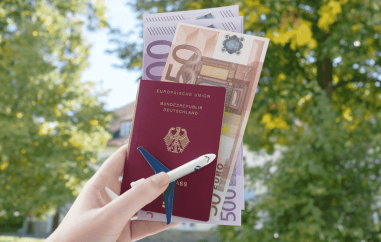Ceiling still very high for Germany's Pirate Party
According to the latest Forsa poll taken in Germany, the Pirate Party received an astonishing 12% across all of Germany.
When the Pirate Party scored enough votes, 8.9%, to enter the parliament in Berlin most Bavarians or those living in Bavaria, dismissed it with a perfunctory wave of their hand. It was, after all, Berliners. They were in no way representative of Germany as a whole, they said. But recently, in Saarland, a place about as far as one can get geographically and culturally from Berlin and still remain within the German borders, that same Pirate Party scored 7.4%. So what gives?
Many Germans are confused by the Pirate Party. Their lack of a plan or program goes against all German sensibilities and traditions for order and structure. Their platform, or lack of one, consists of only a few major issues, according to their websites. But to today's Facebook and Twitter generation, the Pirate Party may be exactly what they want, and on a larger scale may be the only political party that that generation would look at in order to get involved in German politics at all.
So what do they stand for? According to their websites:
o Reform of the patent and copyright laws. Why should a dead person's beneficiary earn money off of their work for 70 years? 5 years is sufficient. What movie studio plans on a film becoming the next "Rocky Horror Picture Show", with a profitable life after a few years? File sharing and p2p should be encouraged. Sharing knowledge and culture is good. Shorter patents on pharmaceuticals. Scientists keep important discoveries a secret until patents can be locked up. This kills innocent people all over the world. No DRM (Digital rights management) technologies that hinder the sharing of software, content, etc. They want to make the internet the largest public library in the world, not only to be used mostly for profit.
o All inhabitants of a city or area pay a flat-tax for mass transit. Everyone can ride for free in their area. This removes most controls, ticket machines, etc. Makes it a bit more expensive for car drivers. May encourage more people to use mass transit. If you pay for it, might as well use it.
o A ban of data collection by mobile phone providers, governments and other internet businesses. Not allowing law enforcement to wiretap frivolously in the name of terrorism. No GPS by Google and others to follow a person's daily wanderings.
o Decriminalization of marijuana.
o Total governmental transparency. They believe that if governments were more open, perhaps even with common citizens present at all meetings, committees, etc, there would be fewer opportunities for political chicanery and more honest dialogue between governments, and between governments and their constituencies.
The Pirate Party is an enigma. Who they are and what they stand for is unknown to most people, which creates either fear or dislike. The Pirate Party may be garnering some support from protest voters, disgruntled Greens, and other frustrated experienced voters. But for the younger generation, who has been exposed to some of the most innovative objects man has ever known since a very early age, the idea of a political party that admits it must learn more, has no real plan, and are internet geeks who want to open the channels to more sharing of those innovative objects, is appealing. It also allows the young people to coalesce around a party of 'their own'. The Pirate Party may not ask for a vote, but instead, taking a page from Facebook simply ask for a "Like". You can always "unlike" later.
The next two state elections, including the one in the most populous state of North-Rhine Westphalia, will give the political pundits a real chance to see if the Pirate Party has any staying power. Anything around 8-10% or higher would portend for all the other major political parties of Germany that a new kid has arrived, and is here to stay.
The Pirate Party is now organized in at least 20 different countries and one member of the EU Parliament is from the Pirate Party of Sweden.
Disclaimer: The Munich Times does not endorse any political party.















































